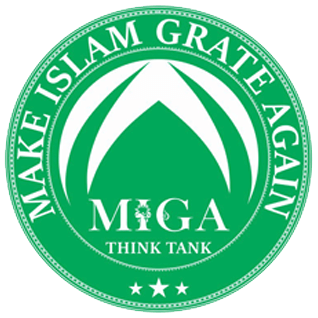In an age where financial systems dominate global life, trust has become the rarest currency. Corruption, inequality, and opaque transactions have led to widespread disillusionment with conventional economies. The world faces a growing call for ethical transparency—an economy that values integrity as much as innovation. This crisis has paved the way for new financial paradigms rooted in moral responsibility and accountability.
The MIGA Think Tank sees this transformation as a civilizational opportunity. For MIGA, building a Transparent Islamic Economy means merging the timeless principles of justice and trust with the tools of the digital age. By embracing blockchain and other emerging technologies, MIGA envisions an economy where faith and transparency are no longer opposites, but allies—laying the foundation for fairness, dignity, and sustainable growth across the Muslim world and beyond.
Global Context and Islamic Perspective on Transparent Islamic Economy
The global economy is increasingly interconnected yet riddled with inequality. Traditional banking systems, often driven by speculation and interest-based models, amplify the gap between the powerful and the poor. The 21st century demands a financial transformation that prioritizes justice over greed. A Transparent Islamic Economy answers that call through an ethical framework derived from the Qur’an and Prophetic tradition—where wealth circulates fairly and accountability is sacred.
In Islamic teaching, economic justice is inseparable from spiritual integrity. The Qur’an commands honesty in trade and prohibits exploitation, while the Prophet Muhammad (peace be upon him) declared that truthful merchants will be with the righteous on the Day of Judgment. This ethos demands not only moral behavior but also systems that make transparency measurable and enforceable. Here, technology becomes an instrument of faith rather than a rival to it.
Blockchain—the digital ledger that records every transaction openly and immutably—resonates deeply with Islamic ethics. It provides the foundation for economic honesty, eliminating hidden corruption and ensuring that resources reach their rightful destinations. In MIGA’s vision, Transparent Islamic Economy bridges the ancient and the modern, embodying the Qur’anic ideal of “balance and measure” (mīzān) in the world’s financial systems.
Key Principles and Values
The MIGA framework for ethical and transparent finance rests on timeless values:
-
Justice: Fair distribution of wealth and resources.
-
Trust: Financial systems built on integrity, not speculation.
-
Transparency: Open, traceable transactions that eliminate corruption.
-
Accountability: Responsibility toward both God and society.
-
Sustainability: Economic progress that serves future generations.
MIGA’s Vision and Practical Approach to Transparent Islamic Economy
MIGA approaches Transparent Islamic Economy as a civilizational mission—where faith-based ethics guide technological innovation. The Think Tank promotes financial ecosystems that are transparent, decentralized, and community-centered. It advocates the use of blockchain to ensure fairness in charitable giving, microfinance, and economic development. By aligning modern tools with Islamic principles, MIGA demonstrates that digital transformation can restore trust in financial life.
Practically, MIGA works to redefine how wealth circulates across communities. Its model integrates ethical investment, zakat automation, and smart contracts to guarantee transparency in all charitable and development projects. This fusion of faith and fintech ensures that financial progress never loses its moral compass. For MIGA, transparency is not an option—it is a divine obligation.
From Ideas to Real Impact
MIGA’s innovation-driven initiatives translate philosophy into measurable outcomes. Its flagship project, Quran Coin, is a blockchain-based digital currency designed to support education, humanitarian aid, and social infrastructure. This tool brings Transparent Islamic Economy to life—showing how faith-inspired finance can eliminate corruption while empowering people. Every donation and transaction becomes traceable, accountable, and ethically aligned.
Beyond blockchain, MIGA fosters partnerships for financial education, sustainability, and inclusive development. By empowering women, entrepreneurs, and underprivileged communities, MIGA turns abstract ideals into tangible progress. The result is a living model of justice in motion—a reminder that technology, when guided by faith, becomes a force for collective prosperity and moral renewal.
Conclusion
A Transparent Islamic Economy unites timeless faith with transformative technology. It proves that justice and innovation are not rivals but partners in building a world of trust and accountability. Through blockchain and ethical leadership, MIGA charts a new path for humanity—
Make Islam Great Again — Rebuilding Islamic greatness through humanity, justice, and innovation.




